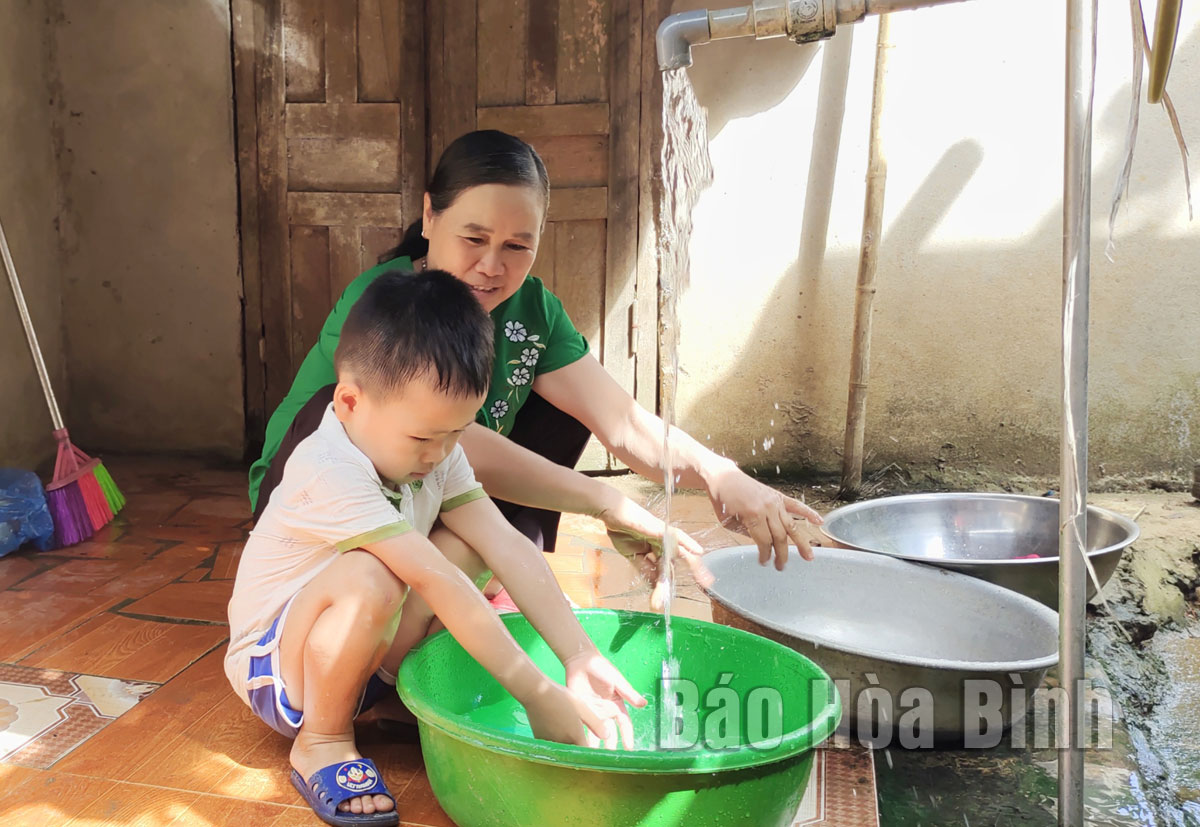
(HBO) - Hoa Binh is one of the 21 provinces benefiting from the programme on expanding the scale of rural sanitation and clean water based on results of loans from the World Bank (WB) in the 2016-2020 period. The programme has brought about practical results, yet the implementation remains slow.

Programme on expanding the scale of rural sanitation
and clean water based on results helps many Hoa Binh households improve their
quality of life. Photo taken in Hop Phong commune (Cao Phong).
The programme, approved in 2016, has a total capital of
271.96 billion VND, with three components, namely rural water supply and rural
sanitation, capacity building and communication, and programme supervision and
evaluation. It set goals of 13,800 households using hygienic water, at least 60
communes achieving sanitation standards, sanitation works of 85 health stations
and 96 schools and 8,850 household toilets built or renovated.
To date, toilets of 79 out of 85 medical stations and all 96
schools have been built or upgraded. It can be said that the programme has made a practical contribution
to improving the quality of life and awareness of local people. However, at
present, it is facing several difficulties and problems that need to be solved.
Dinh Cong Su, Vice Chairman of the provincial People's
Committee and head of the executive board of the programme, said that members
of the executive board have made great efforts in implementing their tasks to
complete the programme's objectives. However, there is a lack of activeness in
the consultation and coordination between departments and sectors, leading to
the slow implementation of some programme contents.
In order to speed up the implementation, the members need to
further improve the sense of responsibility, actively give advice and
recommendations on the implementation of the assigned tasks, review the plan
and coordinate with relevant units to urgently make detailed plans to implement
the 2022 tasks, and work out specific solutions to complete the set goals and
disburse ODA capital at the maximum in 2022./.
More than just an information technology teacher, Bui Van Nien is an inspiring figure who has nurtured the scientific curiosity and creative spirit of students in Vietnam’s ethnic minority communities.
Da Bac is the most disadvantaged mountainous district in Hoa Binh province, with ethnic minorities accounting for about 90% of its population. Over the past years, the district has mobilised resources to implement ethnic policies to improve the quality of life of local people.
In recent years, Hoa Binh province has consistently prioritised the protection, care, and education of children, particularly those from ethnic minorities and disadvantaged backgrounds, by creating a safe, healthy, and nurturing environment for their all-round development.
The Steering Committee for Tobacco Harm Prevention and Control of Hoa Binh province, in coordination with the Tobacco Harm Prevention and Control Fund, held a ceremony on May 28 in response to the World No Tobacco Day (May 31) and the National No Tobacco Week (from May 25 to 31). The event was chaired by Nguyen Van Toan, Standing Vice Chairman of the provincial People’s Committee and head of the Steering Committee.
Since 2021, the Center for Industrial Promotion and Industrial Development Consulting (CIIDC) under the Department of Industry and Trade has been implementing a school lighting model as part of the plan for using energy efficiently and economically in Hoa Binh Province in the pẻiod of 2021 - 2025. This model not only aims to improve the learning conditions and enhance the education quality, but it also promotes the message of energy saving, energy security, environmental protection and contributes to the goals of socio-economic development.
In the 2024 - 2025 school year, the entire Hoa Binh provincial education sector includes 520 educational institutions and schools. Among them are 13 ethnic boarding schools with 153 classes and 4,487 students. Four of these schools have met national standards, reaching 30.7 percent.



